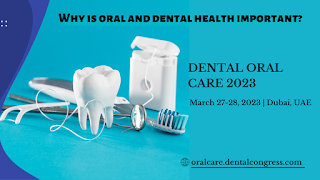Why is oral and dental health important?
Patients with mental disorders ar subject to a bigger
range of risk factors for oral and dental unwellness than the overall
population. This can be principally caused by the facet effects of the
medications that they receive lack of self-care, issue to access health
services, a negative angle towards health care suppliers, and patients’ lack of
cooperation in dental treatments. The foremost common medicine disorders in our
population ar depression, anxiety disorders, dementia praecox, manic depressive
illness, and dementedness. In disorders like anxiety and depression, the most
issue is that the loss of interest in self-care, which ends up in a very poor
hygiene. The foremost frequent oral and dental diseases
in these patients are dental cavities and periodontitis. The aim of this
transient review is to produce up-to-date data concerning the management of
oral and dental diseases of patients with mental disorders.
Therapeutic enhancements and medical specialty changes
in head and neck cancer (HNC) over the last 3 decades have light-emitting diode
to augmented numbers of survivors, leading to bigger want for continued
management of oral and dental health during this population. Generally, the HNC
patient oral health wants ar complicated, requiring multidisciplinary
collaboration among oncologists and dental professionals with special data and
coaching within the field of oral medical specialty. During this review, we
tend to target the impact of cancer treatment on oral health, and therefore the
oral care protocols suggested before, throughout and once cancer medical aid.
The management of oral complications like mucositis, pain, infection, secretion
perform, style and dental wants ar in brief reviewed. Alternative complications
and their management, as well as osteonecrosis of the jaw and recurrent/new
primary malignancies also are represented. This review offers clinical
protocols and data for medical suppliers to help in understanding oral
complications and their management in HNC patients and survivors, and their
oral and dental health care wants. Oral and attention is compact by the
patient’s initial oral and
dental standing, still because the specific cancer location, type, and its
treatment; therefore, shut communication between the dental skilled and
therefore the medical specialty team is needed for acceptable medical aid.

.png)

Comments
Post a Comment